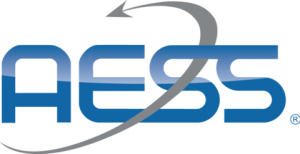The DASC Technical Program issues awards to our best papers published at the 2022 DASC. The Technical Program Awards are managed by the Awards Chair, Chris Watkins.
AWARD PROCESS
- All papers in each session that meet award-eligibility requirements are judged by the session chair(s) to select a Best of Session (BOS) award
- Best of Session papers are eligible for Best of Track (BOT), and are judged by the track chair(s) to select a BOT award
- Best of Track papers are eligible for Best of Conference (BOC), and are judged by selected members of the conference committee
- Conflicts of Interest (COI): If a COI is identified for any judge, then their scores are not accepted, and an alternate judge is delegated responsibility
JUDGING CRITERIA
Even if the Technical Program allows author(s) to correct plagiarism prior to the conference/publication, the paper that included plagiarism is not eligible for an award.
Does the paper advance knowledge or significantly improve the state of affairs for some group of people? Note that you may not care about the problem, but also ask yourself whether you can imagine some group of readers who will be interested in the solution to the problem.
A summary of an already well-documented problem is of little value. A single paper very rarely closes the book on a single problem, but it may take an important step towards solving the problem. If the problem area is completely new or newly scoped (truly new), then perhaps the paper doesn’t really solve the problem at all, but rather articulates a new problem area for follow-on work, which would be a great, significant contribution.
There must be original thought. If an author simply regurgitates existing publications into a consolidated summary then they have not contributed original thought. A summary of existing work should be part of the paper, but not the entire paper. For example, the contribution could be the application or invention of a particular technique, a proof of correctness where one didn’t exist, or a report of data collected from an experiment or analysis that exposes new information on a given topic.
Were the conclusions significant enough to warrant publication? All work is incremental to some degree, as everything builds upon the past. The author’s job is to convince the reader that their increment was important.
Did the author use good grammar? Did the author provide a good introduction of the problem, perhaps with a summary of existing works on the topic? Did the author present a smooth flow of ideas? Did the author provide conclusions that support the initial problem statement? Were figures and tables clearly understood? Was the paper too short or too long to effectively communicate to the reader?
AWARD ELIGIBILITY REQUIREMENTS
- Final paper must be submitted no later than 25 June 2022.
- At least one author must be registered for the conference no later than 25 June 2022.
- The paper must be presented in a technical session by one of the paper authors. This is a requirement for paper publication.
TECHNICAL PROGRAM AWARD PRIZES
- Best of Session paper awards will receive one award certificate per paper author.
- Best of Track paper awards will receive one award trophy to be shared by all paper authors and one award certificate per paper author.
- Best of Conference will receive award trophy(s), and one award certificate per paper author.



